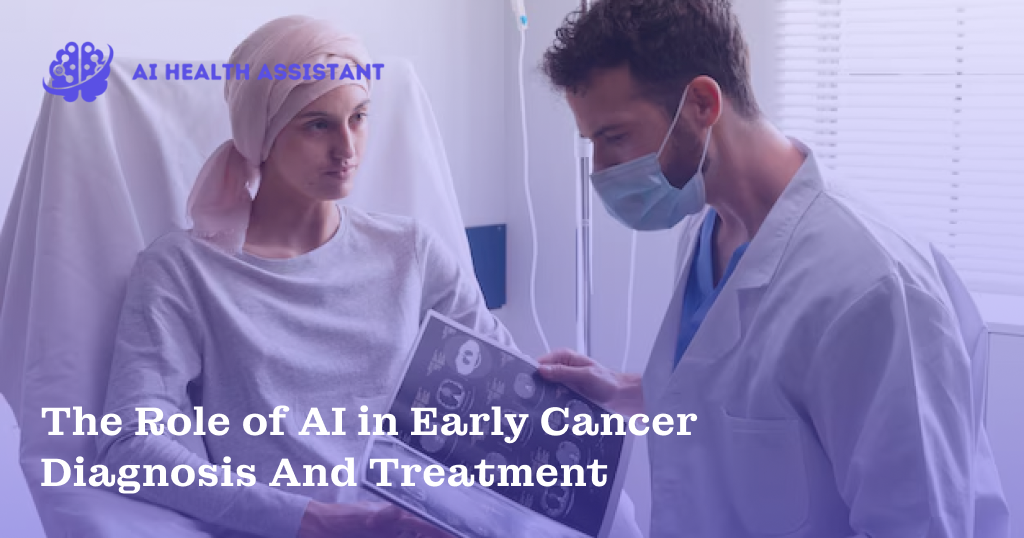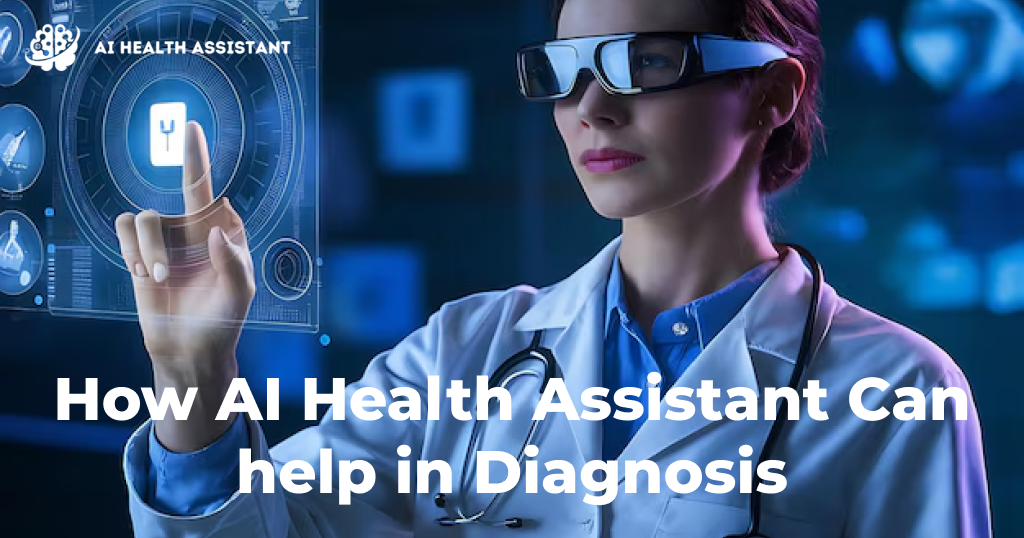
The Role of AI in Early Cancer Diagnosis And Treatment
August 1, 2024
Cancer is a formidable adversary, claiming millions of lives each year across the globe. Early detection and timely treatment are crucial in improving survival rates and enhancing the quality of life for patients. However, the traditional methods of diagnosis are often limited by their dependence on human interpretation and the availability of specialized medical expertise. Enter artificial intelligence (AI) – a groundbreaking technology that is poised to revolutionize the healthcare landscape.
By leveraging vast amounts of data, sophisticated algorithms, and machine learning techniques, AI is enabling earlier, more accurate cancer diagnoses and more personalized, effective treatment plans. This transformative potential of AI offers new hope in the battle against cancer, promising to save countless lives and redefine the standards of medical care.
AI in Early Cancer Diagnosis

1. Enhanced Imaging Techniques
AI algorithms can analyze medical images with remarkable precision, often surpassing human capabilities. Techniques such as deep learning are used to:
- Detect Tumors: AI can identify tumors in mammograms, CT scans, and MRIs with high accuracy, even at early stages. These algorithms can recognize subtle patterns that may be indicative of early-stage cancer, often missed by human eyes.
- Differentiate Tissues: AI can distinguish between cancerous and non-cancerous tissues with a high degree of accuracy. This reduces the likelihood of false positives and negatives, minimizing the need for unnecessary biopsies and enabling more targeted treatment approaches.
2. Predictive Analytics
AI can analyze extensive datasets to predict cancer risk based on a variety of factors, including genetic predispositions, lifestyle choices, and environmental exposures. This predictive capability allows for:
- Personalized Screening Programs: AI-driven models can identify individuals at higher risk for specific types of cancer, enabling tailored screening schedules that can catch the disease early.
- Early Interventions: By recognizing high-risk profiles, AI can help healthcare providers recommend preventive measures and lifestyle changes to reduce the likelihood of cancer development.
3. Pathology
AI aids pathologists by enhancing their ability to analyze tissue samples:
- Rapid Identification: AI systems can quickly and accurately identify cancer cells in histopathological images, accelerating the diagnostic process and reducing the workload on pathologists.
- Improved Accuracy: These systems reduce the subjectivity inherent in human analysis, leading to more consistent and reliable diagnoses.
4. Symptom Analysis
AI-powered tools can analyze patient symptoms and medical histories to flag potential cancer cases. These tools can:
- Identify Patterns: AI can detect patterns in symptoms that may be indicative of cancer, even when those patterns are subtle or non-specific.
- Prompt Further Testing: By recognizing these patterns, AI can prompt healthcare providers to conduct further tests, increasing the likelihood of early detection.
AI in Cancer Treatment
Beyond diagnosis, AI is transforming cancer treatment in several key areas:
1. Personalized Treatment Plans
AI can tailor treatment plans based on individual patient data, including genetic information, response to previous treatments, and overall health. This personalized approach improves:
- Treatment Efficacy: By considering the unique characteristics of each patient’s cancer, AI can recommend the most effective treatment options.
- Reduction of Side Effects: Personalized treatment plans can minimize adverse effects by avoiding treatments that are less likely to be effective or more likely to cause harm.
2. Drug Discovery
AI accelerates the drug discovery process by predicting how cancer cells will respond to different compounds. This innovation speeds up:
- Development of New Treatments: AI can identify promising drug candidates more quickly, bringing effective treatments to market faster.
- Clinical Trials: AI can optimize the design of clinical trials, improving their efficiency and increasing the likelihood of success.
3. Treatment Monitoring
AI systems can continuously monitor patients during treatment, analyzing data from wearable devices and other sources to:
- Detect Complications Early: AI can identify signs of complications or adverse reactions sooner, allowing for timely interventions.
- Adjust Treatment Plans: Continuous monitoring enables dynamic adjustments to treatment plans based on real-time data, improving outcomes.
4. Radiotherapy
AI enhances the precision of radiotherapy by optimizing dose distribution and targeting cancer cells while sparing healthy tissue. This leads to:
- Reduced Side Effects: More precise targeting reduces damage to healthy tissues, minimizing side effects.
- Improved Outcomes: Accurate dose distribution increases the effectiveness of radiotherapy, improving patient outcomes.
How aihealthassistant Can Help in Diagnosis
aihealthassistant.pro is at the forefront of integrating AI into healthcare, providing innovative solutions for early cancer diagnosis. Here’s how aihealthassistant can help:
1. Symptom Checker
aihealthassistant’s AI-powered symptom checker allows users to input symptoms and receive an assessment of potential health issues, including cancer. By analyzing symptoms and medical history, the system can:
- Flag Potential Cancer Cases: Identify symptoms that may be indicative of cancer and prompt users to seek medical advice.
- Provide Preliminary Assessments: Offer insights into possible health concerns, helping users understand their symptoms better.
2. Image Analysis
Users can upload medical images, such as mammograms or CT scans, to aihealthassistant. The AI analyzes these images to detect anomalies that may indicate cancer, providing:
- Preliminary Assessment: AI can highlight areas of concern in medical images, prompting further investigation by healthcare professionals.
- Early Detection: By identifying potential issues early, aihealthassistant can help users get timely medical attention.
3. Predictive Risk Assessment
aihealthassistant can analyze user data to assess cancer risk. By considering factors such as genetics, lifestyle, and medical history, the system provides:
- Personalized Risk Assessments: Tailored insights into an individual’s cancer risk, helping users understand their health better.
- Preventive Recommendations: Suggestions for lifestyle changes and preventive measures to reduce cancer risk.
4. Continuous Monitoring
aihealthassistant offers continuous monitoring of users’ health data, detecting changes that may indicate the development or progression of cancer. This proactive approach ensures:
- Early Identification: Potential issues are detected early, allowing for timely medical intervention.
- Ongoing Support: Continuous monitoring provides users with ongoing support and insights into their health status.
Conclusion
The integration of AI in early cancer diagnosis and treatment is a game-changer, offering new possibilities for detecting cancer at its earliest stages and providing personalized, effective treatments. Tools like aihealthassistant are making these advancements accessible to the public, empowering individuals to take control of their health and seek timely medical advice. As AI technology continues to evolve, its role in combating cancer will only grow, bringing hope to millions of patients worldwide.